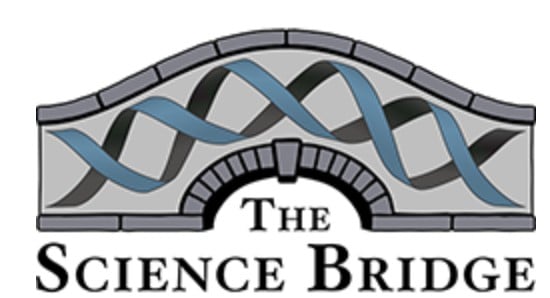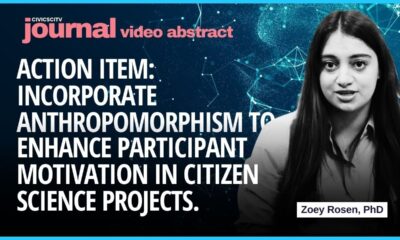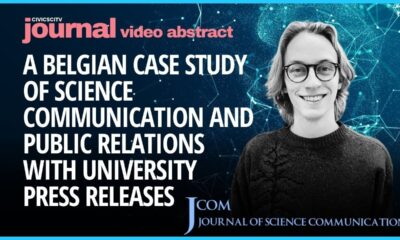Civic Science Observer
Science Unites Cultures
To build a better world through science, researchers joined forces on a new initiative called ‘The Science Bridge’. So far, it has received endorsements from over 200 eminent scientists from around the world, including 29 Nobel Laureates. The first goal of the initiative is to engage intercultural research collaborations for accelerating basic scientific discovery and advancing the treatment of diseases. The second aim is to improve human relations between the diverse world cultures, with the current project focusing on Western and Middle-Eastern/South-Asian countries.
by Professor Mazahir T. Hasan | Achucarro Basque Center for Neuroscience
[dropcap]T[/dropcap]o build a better world through science, researchers joined forces on a new initiative called ‘The Science Bridge’. So far, it has received endorsements from over 200 eminent scientists from around the world, including 29 Nobel Laureates. The first goal of the initiative is to engage intercultural research collaborations for accelerating basic scientific discovery and advancing the treatment of diseases. The second aim is to improve human relations between the diverse world cultures, with the current project focusing on Western and Middle-Eastern/South-Asian countries.
 In a new paper, published in the scientific journal Neuron, the 122 authors from 82 research centers and 22 countries all over the world give an overview of successful intercultural science exchange during the ‘Golden Age’ of the medieval Arab and Persian cultures. This historic model of tolerance and free exchange of ideas can serve as an inspirational model for efforts today in bridging cultures from the West and the Middle-East/South-Asia by scientific pursuits.
In a new paper, published in the scientific journal Neuron, the 122 authors from 82 research centers and 22 countries all over the world give an overview of successful intercultural science exchange during the ‘Golden Age’ of the medieval Arab and Persian cultures. This historic model of tolerance and free exchange of ideas can serve as an inspirational model for efforts today in bridging cultures from the West and the Middle-East/South-Asia by scientific pursuits.
Ikerbasque Professor Mazahir T. Hasan at the Achucarro Basque Center for Neuroscience, founder of this initiative and corresponding author on the paper, emphasizes, “Scientists, as seekers of knowledge, are the ambassadors of humanity and they can unite the world by harnessing the creative power of cultures and international collaborations to eradicate human diseases.”
In the paper, the authors also introduce a two-step plan for The Science Bridge: In the first step, the initiative will organize scientific conferences, research exchange programs and shared grants to enhance collaborations in the life sciences, especially brain research, with a focus on medical treatments and cures. In the second step, it aims to establish “Twin Institutes” which are complementary research facilities with one being located in a Western, the other one in a Middle-Eastern/South-Asian country and both being structured in a way to promote open dialog and exchange of ideas.
Nobel Laureate Professor Torsten Wiesel of the Rockefeller University in New York, USA says, “Researchers from different cultures and nations in the ‘Twin Institutes’, an innovative concept proposed by The Science Bridge, could make important contributions both in science and in human relations.”
Thomas Lissek, first author of the new publication and a medical student at Heidelberg University: “Our key motivation is to accelerate scientific progress by establishing new friendships and new collaborations around the world.”
An argument for why science might be successful in bringing cultures together is that modern research relies on reason and logic at its core and scientific thinking disarms factors that harm free flow of ideas, such as fundamentalism, excessive nationalism or censorship. The results of progress in science and technology are almost always beneficial to the society in which they are achieved, as innovation in these areas often times directly translates to better health and increased prosperity. In the modern global markets, countries need strong creative forces in the science sector to remain competitive and to drive their own economic growth. Collaboration with people from different backgrounds will stimulate progress and improve everyone’s situation.
All along the way, The Science Bridge plans to continuously engage the public by communicating and discussing the results of the research so that people will have direct access to novel knowledge and so that they can stand testament to the cultures working side-by-side.
For more information about The Science Bridge, please visit the homepage www.thesciencebridge.org or write an email to info@thesciencebridge.org
Cover image by Tim Hill from Pixabay | CC0 Creative Commons
The CS Media Lab is a Boston-anchored civic science news collective with local, national and global coverage on TV, digital print, and radio through CivicSciTV, CivicSciTimes, and CivicSciRadio. Programs include Questions of the Day, Changemakers, QuickTake, Consider This Next, Stories in Science, Sai Resident Collective and more.

-
 Audio Studio1 month ago
Audio Studio1 month ago“Reading it opened up a whole new world.” Kim Steele on building her company ‘Documentaries Don’t Work’
-
Civic Science Observer1 week ago
‘Science policy’ Google searches spiked in 2025. What does that mean?
-
Civic Science Observer1 month ago
Our developing civic science photojournalism experiment: Photos from 2025
-
Civic Science Observer1 month ago
Together again: Day 1 of the 2025 ASTC conference in black and white
Contact
Menu
Designed with WordPress
























